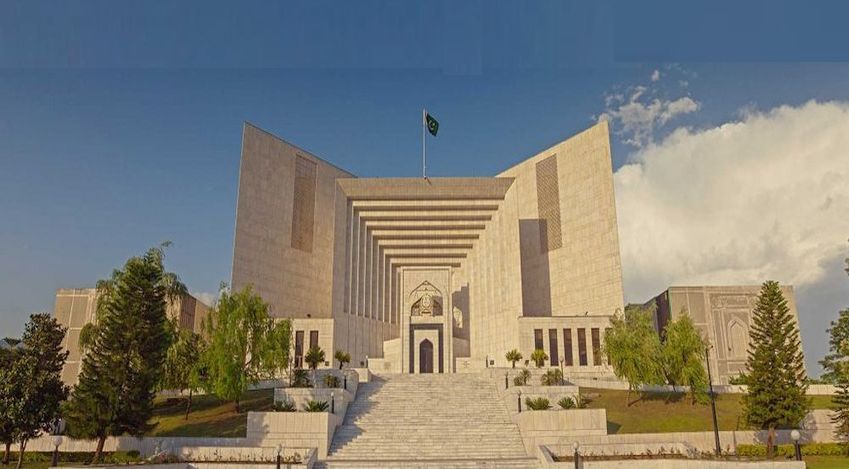Democratic mandate necessitates that the allocation of reserved seats enhances the representativeness of the electorate in the assemblies and upholds the principles of fairness and transparency in the electoral process --- Supreme Court of Pakistan
Islamabad 07-05-2024: The Supreme Court of Pakistan has suspended the operation of order of Peshawar High Court pertaining to Allocation of Reserved Seats of Sunni Ittehad Council (SIC). The three Member Bench consisting of Mr. Justice Syed Mansoor Ali Shah, Mr. Justice Muhammad Ali Mazhar, Mr. Justice Athar Minallah while hearing [C.P.L.A.1328/2024 to C.P.L.A.1329/2024 etc.] observed that the allocation of reserved seats in the National and Provincial Assemblies of Pakistan has become a subject of intense debate before the judiciary. The fundamental of determination is that “Whether political parties not directly participating in general elections should be entitled to reserved seats, stirring constitutional questions regarding representation and fairness”. The Sunni Ittehad Council (SIC) has submitted before the Supreme Court that the allocation of reserved seats to parties other than itself violates constitutional provisions mandating proportional representation. According to SIC's counsel, Article 51(6)(d) & (e) of the Constitution requires the allocation of such seats based on the total number of general seats secured by each party in the National Assembly. SIC contends that, as a parliamentary party with 82 general seats, it is entitled to reserved seats under this provision.
On the contrary, the Election Commission of Pakistan (ECP) contends that reserved seats should only be allocated to parties that contested and won at least one seat in the general elections. According to ECP's counsel, since SIC did not participate in the elections nor secure any seats, it does not meet the criteria for receiving reserved seats.
The Supreme Court observed that the above questions of allocation of reserved seats in the National and Provincial Assemblies touch upon the foundational constitutional concept of a parliamentary democracy that the voice of the electorate is truly reflected in the composition of the assemblies. Democratic mandate necessitates that the allocation of reserved seats enhances the representativeness of the electorate in the assemblies and upholds the principles of fairness and transparency in the electoral process. It is paramount to prioritize the integrity of the elections so that the Parliament remains a true reflection of the will of the people.
The leave to appeal is granted to consider, amongst others, the said questions. The appeals are to be posted for hearing on 03.06.2024. The appeal arising out of these petitions will be heard on the basis of available record; however, both sides are at liberty to file any additional documents, which were part of the record before the fora below but have not been filed with instant petitions.
In the meanwhile, operation of the impugned judgment of the Peshawar High Court dated 25.03.2024, as well as, the order of the Election Commission of Pakistan dated 01.03.2024 is suspended. It is, however, clarified that this interim order relates to the disputed seats only, i.e., the reserved seats allocated over and above the initially allocated reserved seats to the political parties. It is also clarified that this order is to operate prospectively, w.e.f., from today. It is further held that since the questions under consideration require constitutional interpretation, the matter be placed before the Committee under Section 4 of the Supreme Court (Practice and Procedure) Act, 2023 for constitution of a larger bench to hear the appeals.
Powered by Froala Editor








